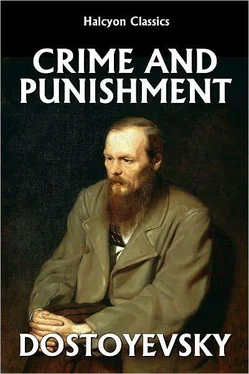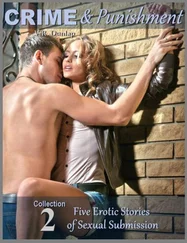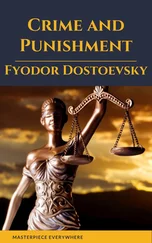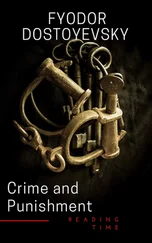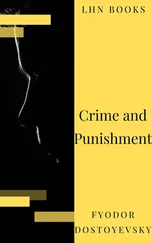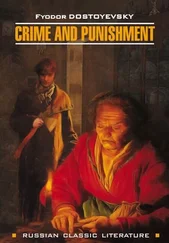"This morning I went to see Sonia, I went to ask her for a pick–me–up! He–he–he!"
"You don't say she gave it to you?" cried one of the new–comers; he shouted the words and went off into a guffaw.
"This very quart was bought with her money," Marmeladov declared, addressing himself exclusively to Raskolnikov. "Thirty copecks she gave me with her own hands, her last, all she had, as I saw… She said nothing, she only looked at me without a word… Not on earth, but up yonder… they grieve over men, they weep, but they don't blame them, they don't blame them! But it hurts more, it hurts more when they don't blame! Thirty copecks yes! And maybe she needs them now, eh? What do you think, my dear sir? For now she's got to keep up her appearance. It costs money, that smartness, that special smartness, you know? Do you understand? And there's pomatum, too, you see, she must have things; petticoats, starched ones, shoes, too, real jaunty ones to show off her foot when she has to step over a puddle. Do you understand, sir, do you understand what all that smartness means? And here I, her own father, here I took thirty copecks of that money for a drink! And I am drinking it! And I have already drunk it! Come, who will have pity on a man like me, eh? Are you sorry for me, sir, or not? Tell me, sir, are you sorry or not? He–he–he!"
He would have filled his glass, but there was no drink left. The pot was empty.
"What are you to be pitied for?" shouted the tavern–keeper who was again near them.
Shouts of laughter and even oaths followed. The laughter and the oaths came from those who were listening and also from those who had heard nothing but were simply looking at the figure of the discharged government clerk.
"To be pitied! Why am I to be pitied?" Marmeladov suddenly declaimed, standing up with his arm outstretched, as though he had been only waiting for that question.
"Why am I to be pitied, you say? Yes! there's nothing to pity me for! I ought to be crucified, crucified on a cross, not pitied! Crucify me, oh judge, crucify me but pity me! And then I will go of myself to be crucified, for it's not merry–making I seek but tears and tribulation!… Do you suppose, you that sell, that this pint of yours has been sweet to me? It was tribulation I sought at the bottom of it, tears and tribulation, and have found it, and I have tasted it; but He will pity us Who has had pity on all men, Who has understood all men and all things, He is the One, He too is the judge. He will come in that day and He will ask: 'Where is the daughter who gave herself for her cross, consumptive step–mother and for the little children of another? Where is the daughter who had pity upon the filthy drunkard, her earthly father, undismayed by his beastliness?' And He will say, 'Come to me! I have already forgiven thee once… I have forgiven thee once… Thy sins which are many are forgiven thee for thou hast loved much…' And he will forgive my Sonia, He will forgive, I know it… I felt it in my heart when I was with her just now! And He will judge and will forgive all, the good and the evil, the wise and the meek… And when He has done with all of them, then He will summon us. 'You too come forth,' He will say, 'Come forth ye drunkards, come forth, ye weak ones, come forth, ye children of shame!' And we shall all come forth, without shame and shall stand before him. And He will say unto us, 'Ye are swine, made in the Image of the Beast and with his mark; but come ye also!' And the wise ones and those of understanding will say, 'Oh Lord, why dost Thou receive these men?' And He will say, 'This is why I receive them, oh ye wise, this is why I receive them, oh ye of understanding, that not one of them believed himself to be worthy of this.' And He will hold out His hands to us and we shall fall down before him… and we shall weep… and we shall understand all things! Then we shall understand all!… and all will understand, Katerina Ivanovna even… she will understand… Lord, Thy kingdom come!" And he sank down on the bench exhausted, and helpless, looking at no one, apparently oblivious of his surroundings and plunged in deep thought. His words had created a certain impression; there was a moment of silence; but soon laughter and oaths were heard again.
"That's his notion!"
"Talked himself silly!"
"A fine clerk he is!"
And so on, and so on.
"Let us go, sir," said Marmeladov all at once, raising his head and addressing Raskolnikov—"come along with me… Kozel's house, looking into the yard. I'm going to Katerina Ivanovna—time I did."
Raskolnikov had for some time been wanting to go and he had meant to help him. Marmeladov was much unsteadier on his legs than in his speech and leaned heavily on the young man. They had two or three hundred paces to go. The drunken man was more and more overcome by dismay and confusion as they drew nearer the house.
"It's not Katerina Ivanovna I am afraid of now," he muttered in agitation—"and that she will begin pulling my hair. What does my hair matter! Bother my hair! That's what I say! Indeed it will be better if she does begin pulling it, that's not what I am afraid of… it's her eyes I am afraid of… yes, her eyes… the red on her cheeks, too, frightens me… and her breathing too… Have you noticed how people in that disease breathe… when they are excited? I am frightened of the children's crying, too… For if Sonia has not taken them food… I don't know what's happened! I don't know! But blows I am not afraid of… Know, sir, that such blows are not a pain to me, but even an enjoyment. In fact I can't get on without it… It's better so. Let her strike me, it relieves her heart… it's better so… There is the house. The house of Kozel, the cabinet–maker… a German, well–to–do. Lead the way!"
They went in from the yard and up to the fourth storey. The staircase got darker and darker as they went up. It was nearly eleven o'clock and although in summer in Petersburg there is no real night, yet it was quite dark at the top of the stairs.
A grimy little door at the very top of the stairs stood ajar. A very poor–looking room about ten paces long was lighted up by a candle–end; the whole of it was visible from the entrance. It was all in disorder, littered up with rags of all sorts, especially children's garments. Across the furthest corner was stretched a ragged sheet. Behind it probably was the bed. There was nothing in the room except two chairs and a sofa covered with American leather, full of holes, before which stood an old deal kitchen–table, unpainted and uncovered. At the edge of the table stood a smoldering tallow–candle in an iron candlestick. It appeared that the family had a room to themselves, not part of a room, but their room was practically a passage. The door leading to the other rooms, or rather cupboards, into which Amalia Lippevechsel's flat was divided stood half open, and there was shouting, uproar and laughter within. People seemed to be playing cards and drinking tea there. Words of the most unceremonious kind flew out from time to time.
Raskolnikov recognised Katerina Ivanovna at once. She was a rather tall, slim and graceful woman, terribly emaciated, with magnificent dark brown hair and with a hectic flush in her cheeks. She was pacing up and down in her little room, pressing her hands against her chest; her lips were parched and her breathing came in nervous broken gasps. Her eyes glittered as in fever and looked about with a harsh immovable stare. And that consumptive and excited face with the last flickering light of the candle–end playing upon it made a sickening impression. She seemed to Raskolnikov about thirty years old and was certainly a strange wife for Marmeladov… She had not heard them and did not notice them coming in. She seemed to be lost in thought, hearing and seeing nothing. The room was close, but she had not opened the window; a stench rose from the staircase, but the door on to the stairs was not closed. From the inner rooms clouds of tobacco smoke floated in, she kept coughing, but did not close the door. The youngest child, a girl of six, was asleep, sitting curled up on the floor with her head on the sofa. A boy a year older stood crying and shaking in the corner, probably he had just had a beating. Beside him stood a girl of nine years old, tall and thin, wearing a thin and ragged chemise with an ancient cashmere pelisse flung over her bare shoulders, long outgrown and barely reaching her knees. Her arm, as thin as a stick, was round her brother's neck. She was trying to comfort him, whispering something to him, and doing all she could to keep him from whimpering again. At the same time her large dark eyes, which looked larger still from the thinness of her frightened face, were watching her mother with alarm. Marmeladov did not enter the door, but dropped on his knees in the very doorway, pushing Raskolnikov in front of him. The woman seeing a stranger stopped indifferently facing him, coming to herself for a moment and apparently wondering what he had come for. But evidently she decided that he was going into the next room, as he had to pass through hers to get there. Taking no further notice of him, she walked towards the outer door to close it and uttered a sudden scream on seeing her husband on his knees in the doorway.
Читать дальше
